- Home
- Noelle Adams
Late Fall Page 6
Late Fall Read online
Page 6
I imagine Dave is not much different.
“Don’t you?” I ask, lifting my eyebrows in the way I always do when I want to convey mild irony.
“Yes,” he admits. “Most of the time. Sometimes it’s damned boring.”
Maybe it is, but it doesn’t bother me. I never get bored.
“What?” he asks, after a moment, as if he can see I have something in mind, something I might say.
I’m not usually inclined to share what I’m thinking with people—certainly not with a man who is a virtual stranger. But I hear myself saying anyway, “I was just thinking that I don’t get bored. Even with the same schedule every day, I can always find something to entertain myself.”
He’s peering at me again, turning his head so he can see my expression. “What do you do to entertain yourself?”
I’m surprised by the question, since the answer should be obvious. “I think. I read. I do word games. I watch movies. I walk. I look out onto Valentine Valley.”
He turns his head toward the valley, and he asks in a different tone, “What do you see there?”
I give a little shrug, feeling strangely jittery, although there’s absolutely no reason for it. “Home.”
The answer seems to affect him, since he’s still and silent for nearly a full minute. Then he finally murmurs, “Yes. That’s something, isn’t it?”
We don’t talk again until we leave to walk back. I get up first, and he follows.
The following day, I go to a yoga class with Marjorie.
When she first invited me to go, I laughed, telling her that simply walking is hard enough for me. Standing on my hands will be impossible.
“Oh, but it’s chair yoga,” she says. “None of us can do the fancy moves, but I’m sure you’ll like it. All the ladies from the knitting circle go.”
I’ve never heard of chair yoga, but Marjorie is much frailer than I am. If she can do it, then surely I can too. I like Marjorie—more every time we talk—and I prefer to say yes to her if I can.
So I change into a long T-shirt and stretchy pants that Beth has always called “yoga pants.” Surely that’s an appropriate outfit for chair yoga. I pull my hair back in a ponytail so it won’t get in the way.
I don’t have nearly the energy I used to. Every time I try to do something active now, it takes a concerted effort to start. But I’m usually pleased with myself after it’s done—proud that I accomplished something—so I hope I’ll feel the same way after this class.
Evidently, chair yoga is done while sitting in a straight-backed chair. There are fifteen of them lined up in a room in the community center with a wall of mirrors. The teacher is the peppy staff member who is in charge of health activities for the residents. She’s a little too peppy for my taste. There’s only so long a person can smile before I start to believe that it’s fake.
But Marjorie is thrilled that I’m here, so I’m glad I made myself come. I sit in the chair next to her, and she tells me the names of all the women in her knitting circle.
Some of them I’ve met already, and the others I recognize from around the residence. Marjorie tells me little details about them—“Stella has had four husbands, you know”—“Mary can’t drink milk or anything dairy. It makes her gassy”—“Clarisse keeps a thousand dollars in cash under her mattress”—and she speaks so loudly that all of the women must be able to hear her.
They either smile in fond amusement or give her annoyed glances over their shoulders. This gives me a clue about whether they’re the kind of women I will like.
The class begins, and we all have to stretch our arms in various positions, breathe deeply, and keep our posture very straight. It’s really not so bad. The stretching actually feels good. And it might even be relaxing were not all the women having conversations with each other while they performed the moves.
It seems like yoga should be a quieter activity, but the peppy class leader doesn’t even try to shush anyone. She’s probably used to it.
Marjorie tells me about the dance lessons she had as a child. Evidently, she was really good at ballroom dancing and got to perform at some fancy hotels. She lived in a number of big cities after she got married, and for a while she still tried to keep up her dancing. It’s interesting to listen to her. She’s had such a different life than I have. I wonder if she regrets giving up dancing, but she never says anything that makes me think so.
The chair yoga class goes quickly, and I’ve actually enjoyed myself. As we leave the room, I thank Marjorie for inviting me.
“Oh, did I invite you, dear?” she asks.
She’s definitely a little spacey, but it’s very clear to me now that it has nothing to do with her intelligence or her heart. I’m glad to have met her. I would even call her a friend.
“You did.” I feel a wave of affection and do something that’s not something I often do. I lean over and kiss her on the cheek. “It was a lovely thing to do.”
She smiles, clearly pleased by the gesture.
As I straighten up, I see a couple of men walking down the hall, dressed like they’ve been playing tennis.
One of them is Dave. I recognize him well before I’m able to make out his features. His body, his stride, is unmistakable.
At least to me.
He’s watching me as he approaches, and I see something like curiosity in his eyes.
For a moment, I wonder how I look, in the baggy T-shirt and ponytail. Then I remind myself that it really doesn’t matter.
He nods politely, and the man with him tells both Marjorie and me hello. Then they’ve walked past us and the encounter is over.
I feel vaguely disappointed, but I’m not sure what else I expected. Dave and I aren’t friends.
We just aren’t.
“He has eyes for you,” Marjorie says.
I turn toward her quickly. “What do you mean?”
“Dave Andrews. He has eyes for you.”
“He does not. He barely acknowledged us.”
She gives a tittering laugh and doesn’t say any more, but I wonder if she’s seen more in him than I did.
It’s Thursday before I decide to ask Dave the question I’ve wanted to ask each morning.
We’ve seen each other every day, sitting on the bench together. We always have a brief conversation, but it never lasts very long.
We’re not friends. We’re not close. We’re still mostly strangers—strangers who share a few minutes together, cut off from the rest of the world, here on the edge of the mountain.
On Thursday, he’s complaining about his arm, which he evidently pulled the other day playing tennis. I tell him he should be more careful, since he’s not a young man anymore.
He doesn’t appreciate this comment. He sits in silence for a few minutes with a frown on his face.
At first, I’m amused, since I knew what his reaction would be to my words and said them anyway. But then I feel more confident, as if Dave isn’t quite so distant and foreign as he felt a few days ago. So I consider the possibility for a few minutes before I ask, “Who is Clara?”
Dave gives a little jerk, startled either by my voice or by the question itself. “What’s that?”
“Who is Clara?” I repeat. I’m quite sure he heard the question the first time, but this is something that I do too when I’m taken off guard—use a clarifying question to give myself a little time to find more secure footing.
“Oh.” He looks away.
Well, it’s obvious he doesn’t want to talk about her, but I want to know, and I’m not going to back down now that I’ve asked. It would make me look weak and spineless. “Was she your wife?”
“No.” He meets my eyes again, and there’s a challenge in his expression that I’m not expecting. “She was my daughter.”
“Oh.” I swallow, feeling a little wave of guilt at bringing up a subject that must be painful to him. “She died?” There would be no reason for a memorial bench to the girl if she were still living.
“Yes.”
/>
“When was that?” He didn’t have kids when I knew him back at the college, so he must have had the girl when he was in his late forties or fifties. Not unusual, for men.
“She was only thirteen. It’s been a long time.”
“That’s so sad. What happened to her?”
He’d looked reluctant to talk about it at first, but now he answers easily, as if he’s released a breath or let something go—something that allows him to open up. “Leukemia. She fought it for four years.”
“Wow. That’s …” Heartbreaking.
“There are no words. I know.” He’s not looking at me, but it doesn’t feel like he’s closing me out. I don’t know why I’m surprised that he’s faced a tragedy like this in his life—everyone has their share of heartaches if they reach the age we are—but I am surprised. His life has always seemed charmed to me. Easy.
But I should know better by now.
I should know better.
“Was your wife still around when it happened?” I don’t actually know the full story with his wife, so I try to be careful with the words.
He nods. “We divorced after she died. It was like we couldn’t stand to even look at each other anymore. I guess that’s normal.” He leans back against the bench, stretching out his legs.
“I heard your wife died.”
He looks surprised for just a moment. “Oh, you must mean my second wife. She died, yes. About nine years ago, before I moved here.”
“Do you have any other children?”
“No.”
I remember what Charlotte told me. “Stepchildren, then?”
“Yes, I have a whole passel of stepkids.” He shakes his head. “Not the same.”
“No,” I say. “I guess not.” The stepkids would have been older when he married his second wife. Even if his wife was a lot younger than him, they would probably have at least been teenagers. It might have been hard to bond in a situation like that.
“You never had kids?” he asks, his expression changing, as if he’s putting the sad stuff behind him.
I know the feeling. I experience it more and more as I get older. There’s simply too much that hurts, too much to dwell on. You have to think of other things if you’re to make yourself keep going.
Onward, as Gordon said on Saturday night.
“No, I never had kids.”
“Did you want them?” It’s a presumptuous question, but I’ve been asking him presumptuous questions too, so I can hardly resent it.
I shake my head. “No. I never really did. There was a time, when I was younger, when I wouldn’t have minded having kids. But when I finally had the chance, it just didn’t feel right.”
“Hmm.”
I figure that’s response enough, so I stare out to the valley once more. The sun is bright today, and it’s flashing against the water of the lake in the distance.
“I have a very good nephew,” I say after a moment of silence. “He and his youngest daughter are very good to me.”
Dave’s forehead wrinkles, and for a moment he looks almost bleak. “That’s good. You aren’t alone.”
I don’t like that flicker of emotion I catch on his face, so I say something in an attempt to be positive. “And you have your stepkids. Someone said you went on vacation with them, so I guess they take good care of you.”
Dave gives a slightly bitter laugh. “Oh, yes.”
I don’t know what he means by that, but it worries me.
That afternoon, I have tea with Charlotte.
I don’t see Charlotte every day, since sometimes she’s busy and sometimes she’s off duty. But I like her the best of all the staff at Eagle’s Rest I’ve met so far, and I’m pleased when she comes over to sit with me on the veranda where I’m drinking my tea.
We’re chatting lightly about books we’ve read and places we’ve traveled when I see her eyes drift away from me.
Long experience has taught me what that means, so I turn my head automatically to see what has distracted her.
I see Gayle Langston, who is the managing director of this community. I’ve only met her once in person, but I see her around quite a bit. She’s a middle-aged professional woman who comes across as efficient and no-nonsense.
With her is a man I’ve never seen before. He wears good trousers and a white dress shirt, and he’s probably in his forties—with a high forehead and a sharp chin. I recognize that a lot of women would find him attractive, but I’ve never liked his kind of looks.
I turn back to Charlotte and see that her eyes are fixed on the man. He glances over at us and gives a wave and a smile in our direction.
Charlotte waves back, her cheeks flushing as she giggles.
This must be Kevin, the lawyer.
“Is that someone important?” I ask.
“It’s Kevin,” she says, giving me a look I well recognize, that secretly excited look that girls get when they want to confess something juicy. “Dave Andrews is his stepfather, so he comes out occasionally to look in on him. He’s good about that kind of thing.”
“Is he? He should come over and talk with you then.”
Charlotte shakes her head and watches as Kevin parts with Gayle and walks away, not giving us even a second glance. “He’s very professional. He doesn’t do that kind of thing.”
“Oh. I see.” Although I don’t see at all. After a moment, I watch a very expensive red sports car drive down the road that leads out of the property. “Is that him?”
“Yes. Isn’t it a beautiful car?”
“I guess. He must have a lucrative practice.”
“He does very well, I think. And with Dave as his stepfather, there’s family money.”
“I see.” I want to say more. I want to tell her not to be silly, not to put her hopes in a man who will never fulfill her dreams. I can see it so clearly. Kevin might be spending some time with Charlotte, but it’s not because he’s serious about her. A man who is even halfway interested would have stopped by our table to say hello, at least.
I’ve always hated when I see women doing this—placing their faith in men who will never live up to that faith. I did so myself a few times, and I well remember the emotional limbo, the will-he-won’t-he angst that always led to deep disappointment.
I don’t want that for Charlotte, but there’s nothing for me to do. If I give her advice at this point she’ll only reject it and probably cool off toward me.
Unfortunately, what I want to tell her can only be learned through experience.
Charlotte must be forty or close to it, but not every woman has a lot of romantic experiences early.
And some women want a man so much they forget what their experiences have taught them.
“It’s really too bad,” Charlotte says, leaning closer to me, as if she has a different sort of secret to share.
“What is?”
“I guess that Kevin’s brother and sisters are being rather greedy about Dave’s money.”
My eyes widen, genuinely surprised. “Are they? What are they doing?”
“I’m not quite sure. It’s just a few things that Kevin has said. Dave made a lot of money in his life. I suppose you might know that, if you knew him before.”
“Yes, I’m not surprised by that.”
“And, since he has no children, I guess some of his stepkids take advantage of him.”
“Do they expect to inherit when he dies?”
“I guess they do. I don’t know any details, but I think Kevin is worried by it. He’s a good guy.”
I’m not sure about that, but I’m not prepared to completely dismiss it, either. Kevin might be a good guy. Good guys certainly have been known to lead women on. They do it all the time, often completely obliviously.
I’ve decided I don’t like Kevin, but that doesn’t mean he’s a grasping stepson.
I certainly hope not. I’d like to think that at least one of Dave’s stepsons cares enough about him to prefer him alive rather than dead.
six
>
When I worked in the college library, I used to have lunch in the main dining hall nearly every day. Sometimes I would sit with other members of the staff, but often I would eat alone.
I enjoyed those lunches the best.
I’d watch the students as they came and went, eating their meals and talking to each other. Some of the students I knew by name from time they’d spent in the library, but most I only knew by sight. I’d watch relationships formed, rivalries solidified, hearts broken—all over sandwiches, salads, pizza, cereal, and a variety of bland main dishes. I’d witness the entire arc of romances, from first meeting to intense passion to awkward distance after a breakup.
I never got tired of observing the students’ lives as they were played out while eating lunch.
I’m starting to get the same feeling here at Eagle’s Rest.
There are fifty-eight residents who live in the main building. By my second week, I recognize most of them and know about half of them by name, although I’ve only spoken to twenty or so. I’m certainly familiar enough with them now to know which of them love each other, which hate each other, which have some sort of personal history, and which hang out together because there’s no one else.
There are two rivals for Dave’s attention, although several other women would jump if he called. But the two residents who appear most competitive over him—who believe they have the most hope—are Gladys and Kathy.
Gladys is the bleached blonde he was dancing with on Saturday. She’s a little larger than me and always wears the most ridiculous high heels. I’ve never been a fan—even back when I was younger and they might have been appropriate—but I’d never dream of wearing heels that high now. Gladys does every day, and she wobbles around in an almost laughable way. I’m surprised she doesn’t break an ankle, since she doesn’t seem steady on her feet even without the heels. She manages, although it takes her longer to get from place to place than it takes me—even with my walker.
Kathy is a redhead who is always dressed to the nines. She was dancing with Dave on Saturday night too. Her shoes are always more reasonable than Gladys’s, but she must spend an hour doing her makeup every morning. Sometimes I stare at her cheekbones and eyelids, as if they are works of art. I don’t find the overall effect particularly flattering, but the male residents seem to appreciate it.

 In Want of a Wife
In Want of a Wife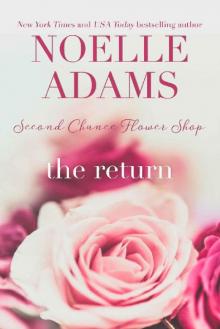 The Return (Second Chance Flower Shop Book 1)
The Return (Second Chance Flower Shop Book 1) Second Best, #1
Second Best, #1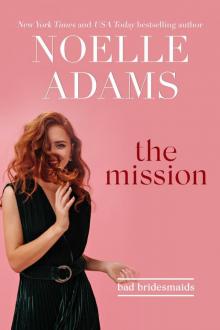 The Mission
The Mission Temp
Temp The Return
The Return Stranded in the Woods
Stranded in the Woods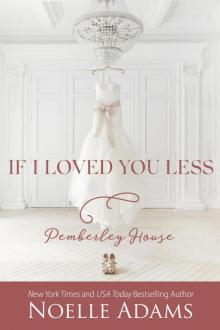 If I Loved You Less
If I Loved You Less Single Dad
Single Dad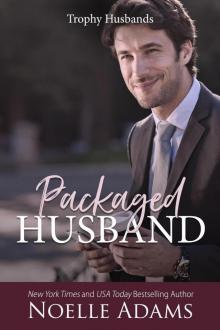 Packaged Husband (Trophy Husbands, #3)
Packaged Husband (Trophy Husbands, #3) Stranded in the Woods (Holiday Acres Book 3)
Stranded in the Woods (Holiday Acres Book 3) Single Dad (Milford College Book 3)
Single Dad (Milford College Book 3) The Rebound
The Rebound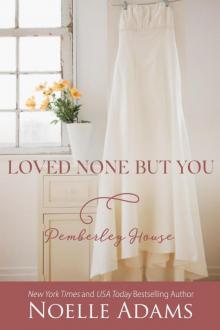 Loved None But You (Pemberley House, #3)
Loved None But You (Pemberley House, #3) Living with Her Fake Fiancé (The Loft Book 3)
Living with Her Fake Fiancé (The Loft Book 3) Stranded in the Snow
Stranded in the Snow The Reunion (Second Chance Flower Shop Book 3)
The Reunion (Second Chance Flower Shop Book 3) Secret Santa (Milford College Book 4)
Secret Santa (Milford College Book 4) Stranded on the Beach
Stranded on the Beach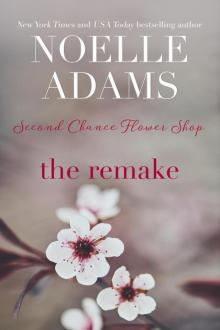 The Remake
The Remake Carpool (Milford College, #1)
Carpool (Milford College, #1) Secret Santa
Secret Santa Christmas Bride (Convenient Marriages Book 5)
Christmas Bride (Convenient Marriages Book 5)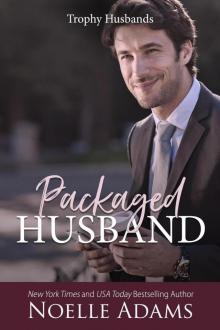 Packaged Husband
Packaged Husband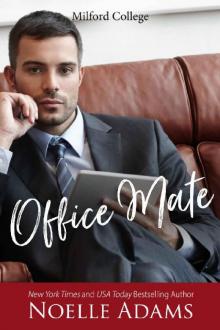 Office Mate (Milford College Book 2)
Office Mate (Milford College Book 2)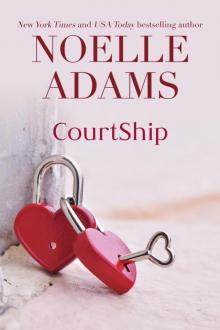 CourtShip
CourtShip Carpool
Carpool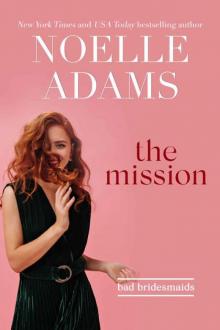 The Mission (Bad Bridesmaids Book 2)
The Mission (Bad Bridesmaids Book 2) Third Life
Third Life Christmas Bride
Christmas Bride Living with Her Ex-Boyfriend (The Loft Book 2)
Living with Her Ex-Boyfriend (The Loft Book 2)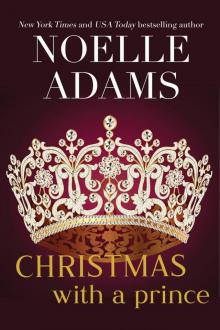 Christmas with a Prince
Christmas with a Prince The Rebound (Second Chance Flower Shop Book 2)
The Rebound (Second Chance Flower Shop Book 2)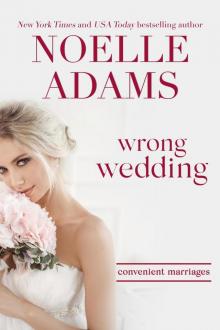 Wrong Wedding
Wrong Wedding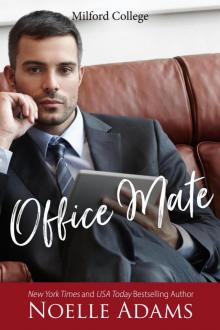 Office Mate
Office Mate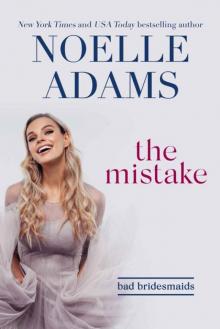 The Mistake (Bad Bridesmaids Book 1)
The Mistake (Bad Bridesmaids Book 1) Stranded for Christmas
Stranded for Christmas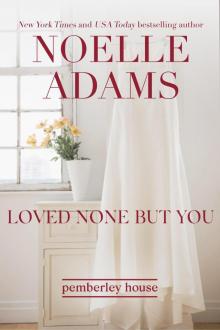 Loved None But You
Loved None But You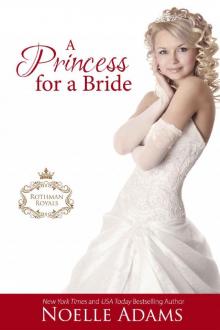 A Princess for a Bride (Rothman Royals Book 2)
A Princess for a Bride (Rothman Royals Book 2)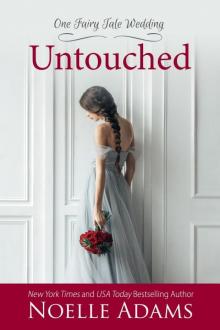 Untouched (One Fairy Tale Wedding, #2)
Untouched (One Fairy Tale Wedding, #2)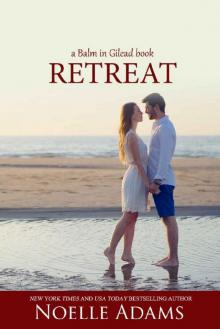 Retreat
Retreat Just Friends: Two Friends-to-Lovers Stories
Just Friends: Two Friends-to-Lovers Stories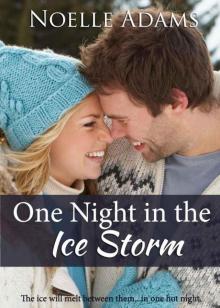 One Night in the Ice Storm
One Night in the Ice Storm Temp (Milford College Book 5)
Temp (Milford College Book 5) Living with Her Ex-Boyfriend
Living with Her Ex-Boyfriend Holiday Heat
Holiday Heat Falling for her Brother's Best Friend (Tea for Two Book 1)
Falling for her Brother's Best Friend (Tea for Two Book 1)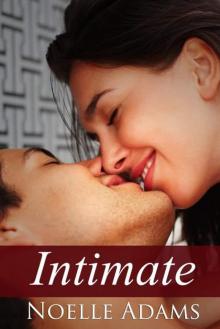 Intimate
Intimate Married for Christmas (Willow Park)
Married for Christmas (Willow Park) Bittersweet
Bittersweet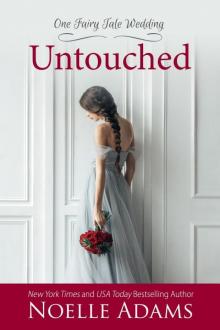 Untouched
Untouched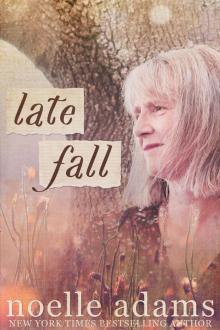 Late Fall
Late Fall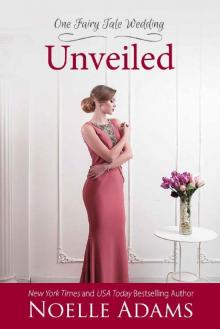 Unveiled (One Fairy Tale Wedding Book 3)
Unveiled (One Fairy Tale Wedding Book 3)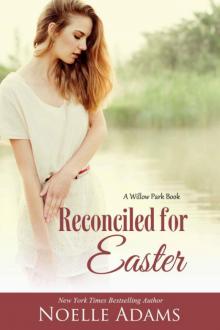 Reconciled for Easter
Reconciled for Easter Her Reluctant Billionaire
Her Reluctant Billionaire Salvation
Salvation Seducing the Enemy (Entangled Indulgence)
Seducing the Enemy (Entangled Indulgence)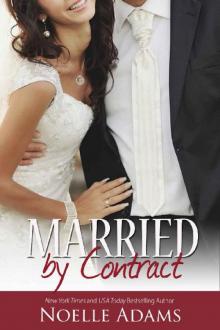 Married by Contract
Married by Contract Royally Wed: a Romance Duet
Royally Wed: a Romance Duet Seducing Her Brother's Best Friend (Tea for Two Book 3)
Seducing Her Brother's Best Friend (Tea for Two Book 3)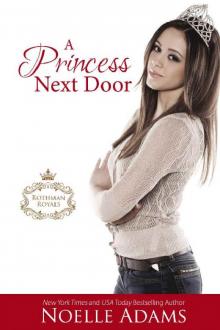 A Princess Next Door (Rothman Royals Book 1)
A Princess Next Door (Rothman Royals Book 1) Winning her Brother's Best Friend (Tea for Two, #2)
Winning her Brother's Best Friend (Tea for Two, #2) Playing the Playboy
Playing the Playboy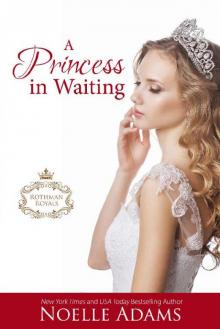 A Princess in Waiting (Rothman Royals Book 3)
A Princess in Waiting (Rothman Royals Book 3) Stranded for Christmas (Holiday Acres Book 4)
Stranded for Christmas (Holiday Acres Book 4) Loving the Bodyguard
Loving the Bodyguard Stranded on the Beach (Holiday Acres Book 1)
Stranded on the Beach (Holiday Acres Book 1) Chasing Jane
Chasing Jane Love for the Holidays (five book Christmas bundle)
Love for the Holidays (five book Christmas bundle) Listed: Volume V
Listed: Volume V A Family for Christmas (Willow Park #3)
A Family for Christmas (Willow Park #3) Listed: Volumes I-VI
Listed: Volumes I-VI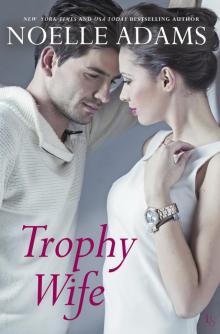 Trophy Wife
Trophy Wife A Negotiated Marriage
A Negotiated Marriage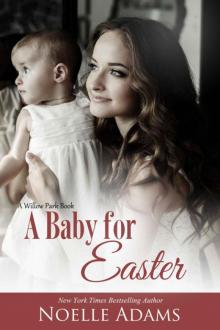 A Baby for Easter
A Baby for Easter Home for Christmas (Willow Park #5)
Home for Christmas (Willow Park #5)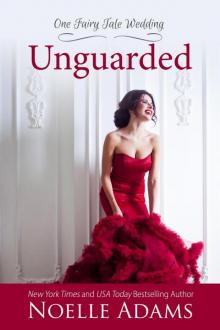 Unguarded (One Fairy Tale Wedding, #1)
Unguarded (One Fairy Tale Wedding, #1)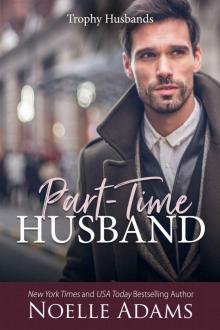 Part-Time Husband
Part-Time Husband Seducing Her Brother's Best Friend
Seducing Her Brother's Best Friend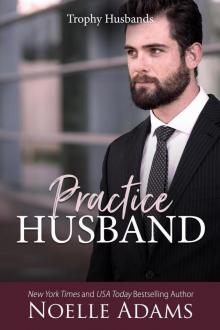 Practice Husband
Practice Husband Road Tripping
Road Tripping Accidental Bride (Beaufort Brides #3)
Accidental Bride (Beaufort Brides #3)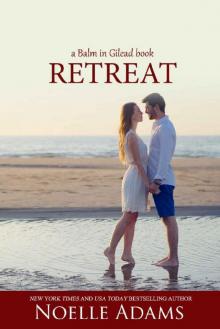 Retreat (Balm in Gilead Book 3)
Retreat (Balm in Gilead Book 3) Seducing the Enemy
Seducing the Enemy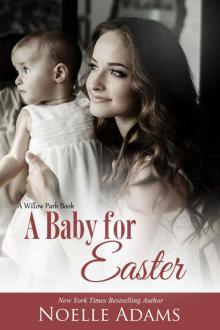 A Baby for Easter (Willow Park)
A Baby for Easter (Willow Park) One Night with her Bodyguard
One Night with her Bodyguard Speed Dating (Preston's Mill Book 2)
Speed Dating (Preston's Mill Book 2) Living with Her Ex-Boyfriend (The Loft #2)
Living with Her Ex-Boyfriend (The Loft #2) CourtShip (Best Friends Book 1)
CourtShip (Best Friends Book 1) Complicating (Preston's Mill Book 3)
Complicating (Preston's Mill Book 3) One Week With Her Husband (Eden Manor Book 3)
One Week With Her Husband (Eden Manor Book 3)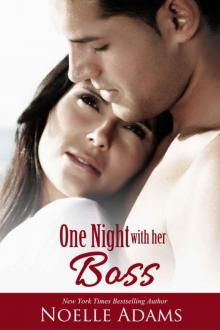 One Night with her Boss
One Night with her Boss Excavated
Excavated One Night with her Best Friend
One Night with her Best Friend Roommating (Preston's Mill #1)
Roommating (Preston's Mill #1) Bay Song
Bay Song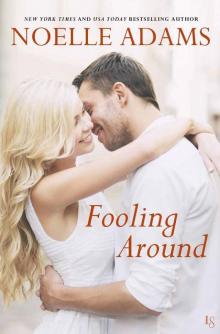 Fooling Around
Fooling Around Stripping the Billionaire
Stripping the Billionaire Revival
Revival Loving the CEO (bundle of five romance novels)
Loving the CEO (bundle of five romance novels) Christmas at Eden Manor
Christmas at Eden Manor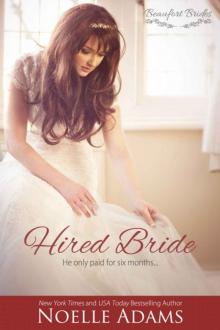 Hired Bride
Hired Bride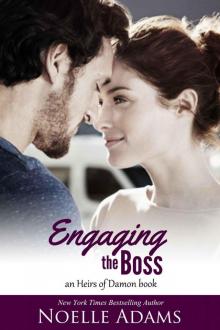 Engaging the Boss (Heirs of Damon)
Engaging the Boss (Heirs of Damon)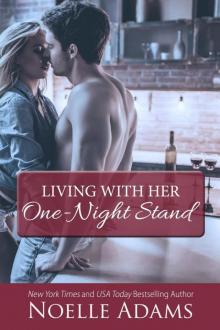 Living with Her One-Night Stand (The Loft, #1)
Living with Her One-Night Stand (The Loft, #1)